444. Movie Reviews - Spoiler Alert (sort of)
Those of you who know me well know I do not do movies. Up until a few weeks ago, I hadn't been to a movie in years. I've never liked dedicating a few hours of my life to a less-than-acceptable made-up story often portrayed by less-than-capable made-up actors. It is related to my aversion to television although I'm not quite sure exactly how. In the nearly twenty-five years I haven't watched television, I've probably been to a movie theatre twenty times at most. Several of those would have been to see Rocky Horror at the old Vogue Theatre in Saint Matthews, and maybe two or three more were special films, the most recent of which was Fake ID in 2003. Doing movies just isn't my thing. Over in the categories column on the right, there really isn't one that doing a movie review will fit into, unless it is uncategorized.
Having said all that, I must tell you in the last three weeks, amidst illness, inaugural, and icestorm, twice I've been found in the dark confines of a movie theatre. My friend Preston and I agreed to see two movies, both for their historical significance. Historical must be taken in context here. The movies both covered real political, cultural events which took place roughly a year and a half apart. I hesitate to say they were historical out of vanity. Both occurred during my lifetime; neither occurred during Preston's so for him the historic appellation is more appropriate.
The movies we viewed were Frost/Nixon and Milk. Both are strong representations of events that historically occurred, each having significance in American history. The Frost/Nixon debates took place in April, 1977, just as my junior year of high school was coming to an end. It was a politically and historically siginificant time in my life as I had just won my first big race, that of Student Government President of my high school, defeating the favored pick in a big way. I had ran for class office in 7th, 8th, 9th, and 11th grades, losing every single time, several times to the same person. Finally, at the end of 11th grade, my election as Student Government President of Durrett High School was an important milestone. David Frost's interviews with the former president were taking place at exactly the same time. As a politically interested and active student, I am sure I followed the interviews, although I'd be lying if I said I actually remember doing so - I don't.
I have always been something of an apologist for the former president on certain matters. I think because of his criminal activity with regard to Watergate, his domestic policy contributions have long been overlooked. I've written here before that he was one of the last of the "government can be the answer" New Deal type presidents. In his early years, and perhaps in his personal life and belief system, Nixon may have been a conservative. On the other hand his presidency, other than the problems with Vietnam and his involvement in Watergate, was an example of pragmatic liberalism, fostering programs such as the Environmental Protection Agency, the Occupational Safety and Health Administration, the Consumer Product Safety Commission, and the Philadelphia Plan of Affimative Action. He was also one of the first presidents since Harry Truman (and one of the last) to seriously address the idea of universal healthcare for all Americans, although like Truman, the plan never got off the planning paper. But, all of that, much good and well-known bad, was put down with the interviews by the British television personality David Frost.
The movie tells two distinct stories; first that of Frost, who agonizes over how to finance the project, an agony which was not overcome until after the broadcasts. The other story is that of the lonely yet oddly and uncomfortably amiable Nixon, with a mind and persona fully permeated by the deep rejection he received from the American people after Watergate. Both actors play their characters well, but I think the dark and brooding offering from Frank Langella as the president is sure to remain in people's minds as a reminder of this once great presence on the world's stage then reduced by a belief that the president can and should be above the law. It was an excellent movie.
About a year and half after the Nixon/Frost interviews, word came from the city of San Francisco on November 27, 1978 that its mayor, George Moscone, and one of its supervisors (councilmembers), Harvey Milk, had been assasinated by another supervisor, Dan White. At the time, I was a freshman at the University of Kentucky, enrolled as a political science major, and honestly not very focussed on anything at all, school or otherwise. Upon arrival at UK, I had been elected president of my dorm (Kirwan II) and a few weeks later was elected a vice-president of my pledge class in my fraternity (Sigma Pi). Once elected, my mind turned to partying and little else. The great diversion at the time were the protests both by and against Iranian students just before and after the uprising and subsequent revolution in Teheran, deposing the Shah and institution religious control. The gay revolution occurring in San Francisco was not on my radar screen despite my interests in the support and promotion of gay rights as a personal belief. My political barometer, which had started on the right when I was in my early teens had been gradually moving well to the left. Like the Frost/Nixon debates, I can't honestly say that I remember the San Francisco assassinations clearly. That isn't to say I don't remember them at all them as I clearly do. But, I've never really studied the background story leading up to the assassinations. I do remember all the controversy over Mr. White's so-called "twinkie defense" and his subsequent conviction on manslaughter charges. And I remember years later when it was reported that he committed suicide believing God has a way of spinning the wheel around.
The movie offers an deep-insider's look at the story of Harvey Milk, America's first openly gay politician, elected as a San Francisco City/County Supervisor in 1977. Milk is portrayed by Sean Penn. It is part history and part love story, but it is entirely lifted from a page of real American life; events which happened during my lifetime. With the possible exception of Matthew Shepard, Harvey Milk is America's only gay political martyr, a martyrdom which has only increased over the years. The movie portrays a number of characters, several of whom are still living, while others have passed on, notably that of Scott Smith, portrayed by James Franco, Milk's long-time lover and business partner who died in the 1990s from complications from AIDS. Among others still with us are Dan Nicoletta, Cleve Jones, and Anne Kronenberg, and each of their roles are memorably portrayed in the film.  At different points throughout the movie, I was moved to tears, mostly out of joy for the successes Milk made as a cultural leader, despite his losses as a political candidate. The movie goes through all of his races, and then his tenure as a supervisor, and finally his death. But nothing - nothing - prepared me for a scene at the film's end of the impromptu Memorial March from 18th and Market streets to City Hall in Milk's memory. Estimates then and now put the number at 30,000 to 50,000. The scene is partially recreated, combined with vintage footage from the actual march. It took my breath away and left me sobbing. While the movie may or may not be the greatest, it does tell a great story and, as stated, the ending is an eruption of emotion. The picture at left was taken, at the time, by Danny Nicoletta who is one of the characters portrayed in the film.
At different points throughout the movie, I was moved to tears, mostly out of joy for the successes Milk made as a cultural leader, despite his losses as a political candidate. The movie goes through all of his races, and then his tenure as a supervisor, and finally his death. But nothing - nothing - prepared me for a scene at the film's end of the impromptu Memorial March from 18th and Market streets to City Hall in Milk's memory. Estimates then and now put the number at 30,000 to 50,000. The scene is partially recreated, combined with vintage footage from the actual march. It took my breath away and left me sobbing. While the movie may or may not be the greatest, it does tell a great story and, as stated, the ending is an eruption of emotion. The picture at left was taken, at the time, by Danny Nicoletta who is one of the characters portrayed in the film.
If history is any judge, I won't be back in a movie theatre for several years. And emotionally speaking, that might be a good thing as I need some time to recover.

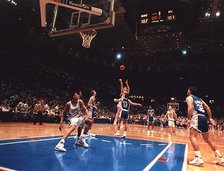
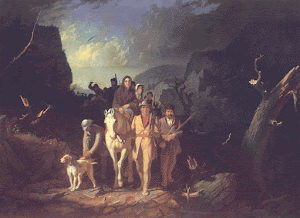












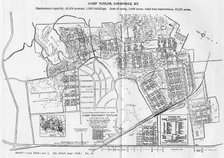
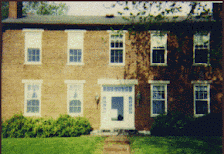

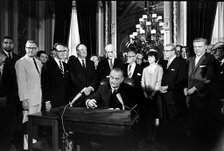

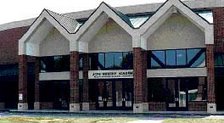
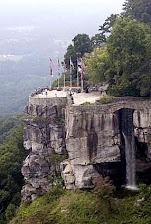

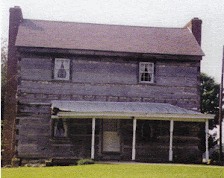
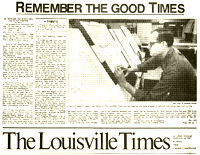
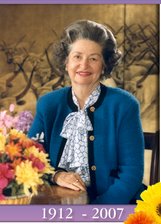
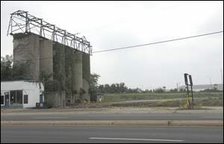
No comments:
Post a Comment